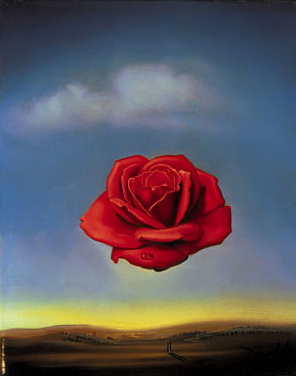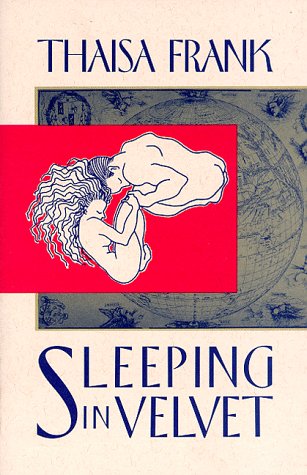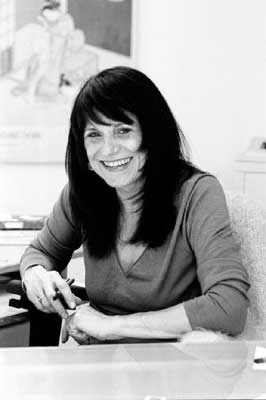
| Fiction | Essays | Poetry | The Ten | On Baseball | Chapbooks | In Memory |
|
writers on the creative life featuring Thaisa Frank
1. When did you start writing? I wrote my first story when I was eight. We were spending six months in Pasadena while my father was on sabbatical and living in an uncharacteristically (for us) beautiful house -- a U-shaped adobe that curved around a patio. My room faced the patio and had a bed built into the wall. I was sitting on the bed and suddenly wrote a story by hand. It was an unremarkable story (sooo not excellent, as my son would say); but I felt as though the story were writing me, not the other way around. Iíve traced my beginnings to that moment, almost as though it were a birth. And although I didnít know whether or not Iíd be a writer, I knew that writing was linked to my sense of being at home in the world. 2. What is your writing routine like? Some writers are marathon runners and others are sprinters: Iím a sprinter and my routine is erratic, but Iíve learned that it has a rhythm. Phase I is Woolgathering: there are half-finished stories, titles, phrases, relentless reading. Phase II is Procrastination: Iím actively not writing and this is time-consuming and exhausting (I read People Magazine and have fugue states in hardware stores where I can spend an hour deciding about what sort of light bulb to buy). Phase III is Filling in the Blanks: I go through my computer and the voice thatís connected to the titles and fragments starts to take over. I always work on more than one thing in this cycle. Phase IV is Focus: I push everything else out of the way and work on one piece until itís right. 3. Who are some of your favorite writers, and which writers have had the strongest influence on you? A tough question,, because some writers who have influenced me have vanished from my horizon. For example, Bartheleme, Sterne and Brautigan all made me realize writing didnít have to be such a ponderous business. Flannery OíConner helped me gain courage. Singer introduced me to a special form of magic realism. I donít read them anymore, but I have to thank all of them. Writers I still re-read that had influence: Kafka, Borges, Faulkner, Swift, P.L Travers, Par Lagerqvist. Writers who didnít influence me but whom I re-read: Mann, Flaubert, Sei Shonogan and Sigrid Undset. Poetry is important to me: Wallace Stevens and Yeats both helped me have courage about my sensibility. 4. Besides writing, what are you most passionate about in your life? My son. Being a mother complemented my life as a writer. I could also say Iím passionate about Buddhism, although passion and Buddhism supposedly donít mix. 5. What kind of music do you enjoy, and do you find that music has an influence on your writing? I love the blues piano player Jimmy Yancey, whose boogie-woogie reminds me of Bach. And Iím crazy about country music. (The Nashville Boys rock!) Iím not sure whether music influenced my writing: I was pushed to be a classical pianist when I was a kid, and resisted it. But in a sense writing is music for me. When I read, I read with my ears -- I can hear that something is wrong with something Iíve written long before I can explain why. Iím sure this is true for a lot of writers. Writing is like composing. 6. Where are your favorite places to travel? Almost any place in the French countryside. Paris and New York (Iím a city girl). Both coasts. Many parts of Europe. 7. Where do your best ideas come from, or, what creates your most inspired state? I wish I knew more about that. In order for me to know something is potential material I have to feel it in my body: in other words, even an idea has to be kinesthetic. Visual images, titles, and phrases come first. The narrative arc and the characters come last. Not having to worry about money creates my most inspired state. 8. Do you have any interesting vices that you'd care to share, and have they helped or hindered your writing? I have one vice that's not very titillating, but itís definitely a vice: Iím always in love with some forbidden food. Two years ago it was chocolate bars with orange peel. Then it morphed to Kozy Shack Flan. At the moment itís BrownCow Vanilla Yogurt with cream on top. This vice is great for a writer because it doesnít take much time. Being in love is time-consuming, but has produced lots of interesting fragments. 9. Yeats said that the only things worth writing about are sex and death -- what would your list include? I would add the unspeakable to that list. Except: what people donít talk about usually involves sex or death. 10. What's next for your writing?
Iím in Phase IV with both a novel and a new collection of short fiction. (Since a novel is so long, I can take a break and focus on finishing a story.) I know the titles, but would rather they be a surprise. Iím also writing (slowly) a book about the imagination, called The Candle in the Day Room.
|
| Home | Contributors | Past Issues | Search | Links | Guidelines | About Us |

|
|
|

|


